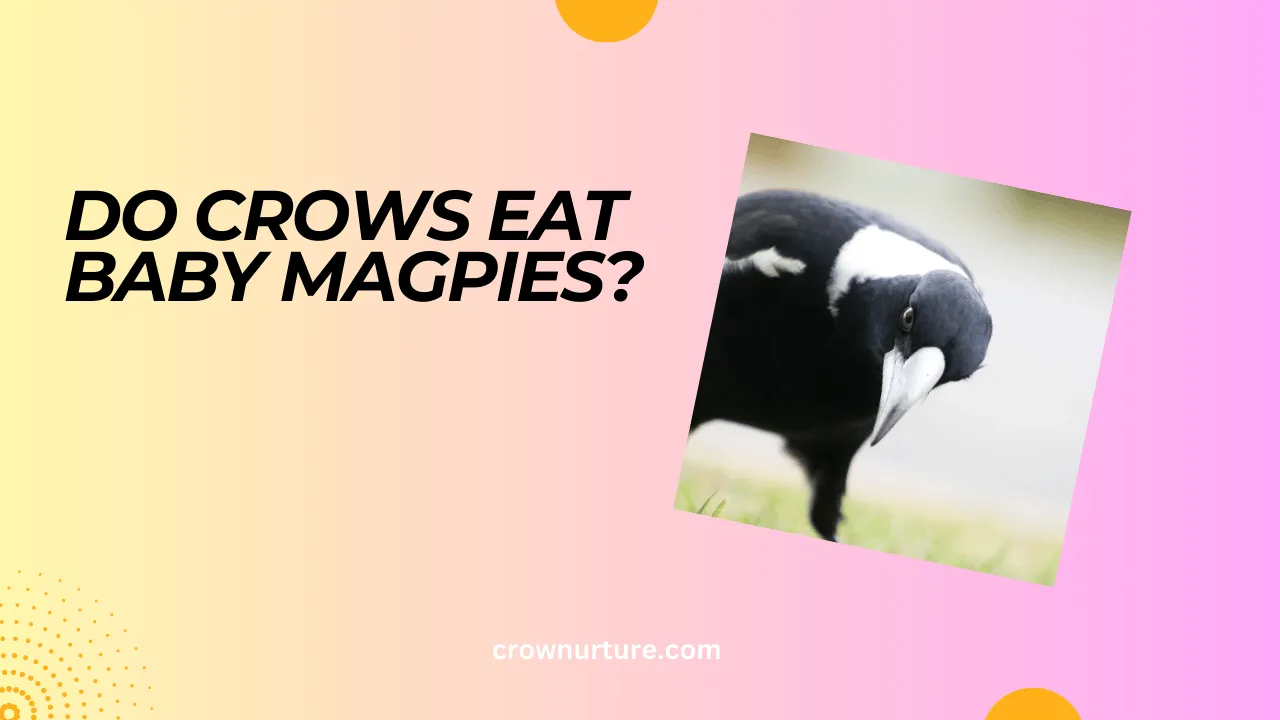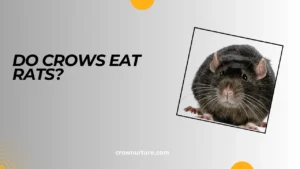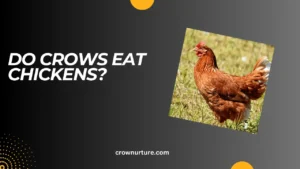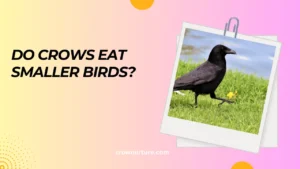Crows are often regarded as some of the most intelligent and resourceful birds on the planet. Known for their clever foraging strategies and ability to adapt to various environments, these omnivorous birds have a diet that includes everything from scraps in urban areas to small animals in the wild.
But what about their behavior towards other birds, especially vulnerable ones? Do crows target baby magpies, and if so, how often does this happen?
The relationship between crows and magpies, particularly regarding predation, raises important questions about the survival strategies of these birds.
While crows are certainly opportunistic feeders, the idea of them preying on young magpies sheds light on a deeper, more complex side of their behavior.
This article will explore the dynamics of crow predation on magpies, considering the factors that influence such actions and the broader ecological implications.
Understanding how crows interact with baby magpies and other vulnerable birds can provide insights into the fragility of avian populations and the delicate balance of ecosystems.
This topic is especially relevant in an age of environmental changes and human intervention, where understanding predator-prey relationships becomes critical to the conservation of species.
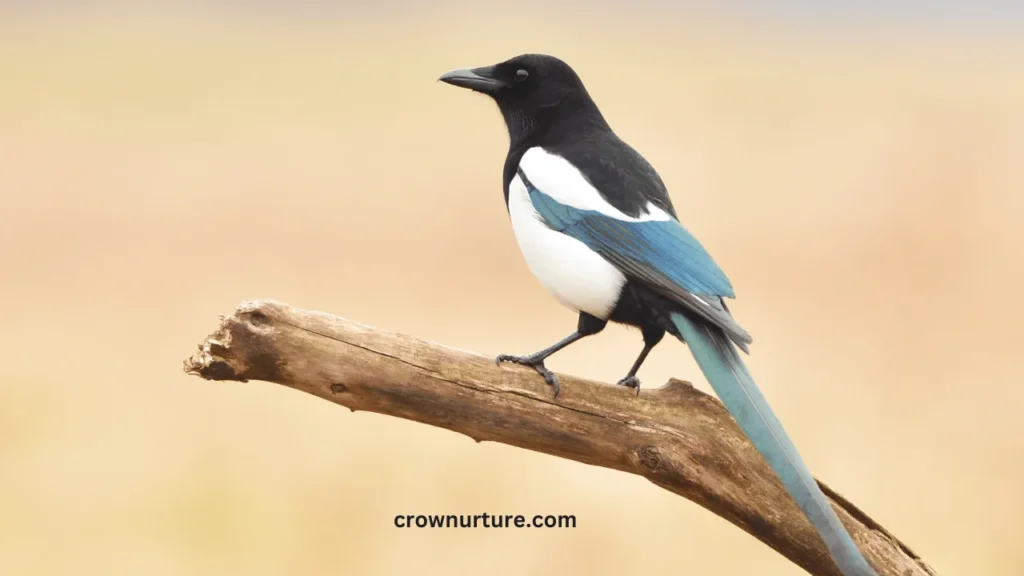
Contents
- 1 1. Crow Diet and Foraging Behavior
- 2 2. Magpie Vulnerability
- 3 3. Factors Influencing Predation
- 4 4. Evidence and Anecdotal Reports
- 5 5. Conservation Implications
- 6 Conclusion
- 7 FAQs
- 7.1 1. Are crows a significant threat to magpie populations?
- 7.2 2. How can I protect magpie nests from crows?
- 7.3 3. Do crows only eat baby birds?
- 7.4 4. Are there any natural predators of crows?
- 7.5 5. How can I attract magpies to my garden?
- 7.6 6. Can crows be dangerous to other birds besides magpies?
1. Crow Diet and Foraging Behavior
Crows are omnivores, meaning they consume a variety of food types, including plant matter, insects, small animals, and even carrion. This adaptability makes them effective foragers in different environments.
- Opportunistic Feeding: Crows are well-known for their opportunistic feeding behavior, which means they will take advantage of whatever food is readily available. This can range from small mammals and birds to human food scraps. In some cases, if a crow comes across a vulnerable baby bird, such as a magpie nestling, it may attempt to feed on it.
- Food Preferences: The dietary preferences of crows are influenced by factors like energy content and nutritional value. Baby birds, which are rich in protein and easy to catch, can be an appealing food source for a crow, especially during the breeding season when they are actively seeking high-energy food.
- Foraging Locations: Crows tend to forage in areas where food is abundant. This can sometimes lead them to magpie nests when they are searching for vulnerable prey. While not their primary diet, baby birds may become an opportunistic meal if the opportunity arises.
2. Magpie Vulnerability
Magpies, like many other birds, go through a vulnerable stage in their life cycle—particularly when they are nestlings. Understanding their vulnerabilities helps explain why they might be targeted by predators like crows.
- Nestling Stage: Magpie nestlings are particularly at risk because they are small, defenseless, and lack the ability to fly or escape from danger. This makes them easy targets for a range of predators, including crows.
- Ground Nesting: Many magpie species build their nests in trees, but some also nest on the ground, making their young even more exposed to predation. Ground-nesting magpies have a significantly higher risk of losing their offspring to predators.
- Parental Defense: Magpie parents are fiercely protective of their young. Adult magpies may engage in aggressive defense tactics, such as dive-bombing or vocalizing loudly to ward off predators. However, these strategies may not always be enough to deter a determined predator like a crow.
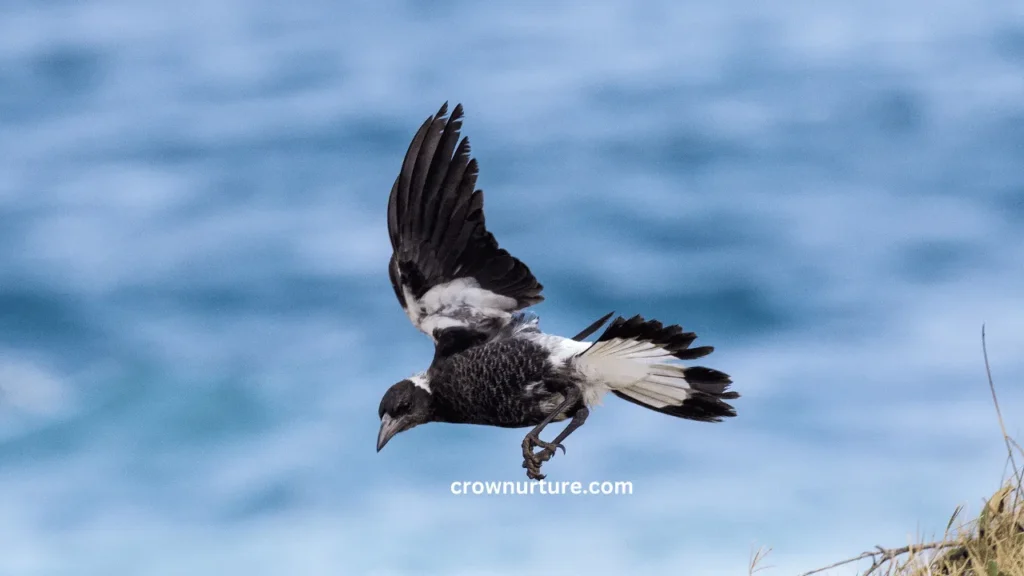
3. Factors Influencing Predation
Several external factors can influence the likelihood of crows preying on baby magpies, including food availability, habitat quality, and population dynamics.
- Food Availability: If other food sources are scarce, crows may be more inclined to target vulnerable baby birds. High food availability in a particular area might reduce the need for crows to predate on other birds. However, in regions where food is limited, predation on nestlings becomes more common.
- Habitat Quality: The quality of both crow and magpie habitats also plays a role in predator-prey interactions. Habitat fragmentation and urbanization can increase the likelihood of predation as both species are pushed into closer proximity, making it easier for crows to locate magpie nests.
- Population Dynamics: The populations of both crows and magpies fluctuate over time, and when crow populations are high, there may be a corresponding increase in predation. Similarly, magpie populations that are stressed due to environmental changes may be more vulnerable to predation.
4. Evidence and Anecdotal Reports
While scientific studies on crow predation of magpie nestlings are limited, there is a wealth of anecdotal evidence from birdwatchers and nature enthusiasts who have observed such behavior.
- Scientific Studies: Some research has indicated that crows, along with other birds of prey, may target young magpies when they are particularly vulnerable. However, these occurrences are relatively rare compared to other types of prey such as insects or small mammals.
- Birdwatcher Observations: Birdwatchers in various parts of the world have reported seeing crows attacking magpie nests or even preying on nestlings. These observations often occur during breeding seasons when young magpies are most at risk.
- Anecdotal Evidence: Local reports often mention how crows might raid magpie nests during periods when food is in high demand, such as during droughts or early spring, when resources are still scarce. These reports confirm that crow predation of magpies is not uncommon but rather a natural part of their behavior.
5. Conservation Implications
Understanding the role of crows in the predation of baby magpies has important implications for the conservation of magpie populations.
- Impact on Magpie Populations: While crows may occasionally prey on baby magpies, the overall impact on magpie populations is relatively minor. Magpies are resilient birds with strong breeding capabilities and can compensate for some losses. However, significant predation pressure could weaken local populations.
- Conservation Strategies: To protect magpies, conservationists may implement strategies such as nest box protection and habitat conservation. These efforts can reduce the exposure of magpie nests to predators like crows.
- Human Intervention: The question of human intervention in predator-prey relationships is complex. While some argue for controlling crow populations, others advocate for preserving natural ecosystems without interference. Ensuring the health of both crow and magpie populations should be a priority for ecological balance.
Conclusion
Crows are opportunistic feeders, and while they may indeed prey on vulnerable baby magpies under certain conditions, their predation does not pose a significant threat to magpie populations overall.
The dynamics of crow and magpie interactions are influenced by various factors, including food availability, habitat conditions, and population sizes.
Understanding these complex relationships is essential for maintaining the balance of ecosystems and ensuring the survival of both species.
By recognizing the adaptability of crows and the vulnerabilities of magpies, we gain a deeper understanding of how these birds interact in the wild.
Conservation efforts that focus on habitat preservation, responsible human intervention, and safeguarding nest sites can help minimize predation and support healthy bird populations.
FAQs
1. Are crows a significant threat to magpie populations?
While crows do prey on baby magpies, their overall impact on magpie populations is minimal.
2. How can I protect magpie nests from crows?
Using protective nest boxes or placing deterrents like reflective tape around nests can help reduce predation by crows.
3. Do crows only eat baby birds?
No, crows have an omnivorous diet and will eat a wide variety of foods, including insects, fruits, seeds, and small animals.
4. Are there any natural predators of crows?
Yes, crows can be preyed upon by larger birds of prey, such as hawks and owls.
5. How can I attract magpies to my garden?
You can attract magpies by providing suitable nesting sites, planting native plants, and avoiding harmful pesticides.
6. Can crows be dangerous to other birds besides magpies?
Yes, crows may prey on other small birds, especially during their nestling stage, when they are vulnerable.

